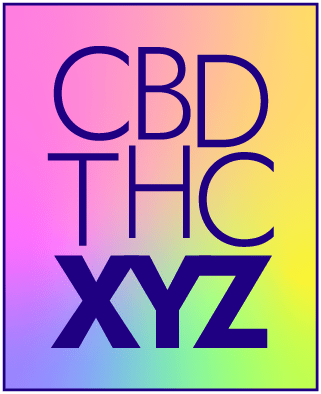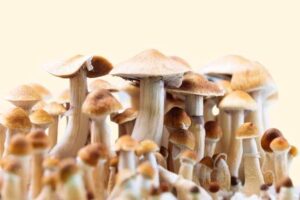Cannabidiol (CBD) has taken the world by storm with its potential benefits for various health conditions. With the growing demand for CBD products, there are different types of CBD extracts available in the market. Two of the most popular types are full-spectrum and broad-spectrum CBD. While both contain cannabinoids that offer various benefits, there are significant differences between the two. Understanding the differences between full-spectrum and broad-spectrum CBD is essential in determining which product is best for your needs. In this article, we will explore the differences between these two types of CBD extracts and help you make an informed decision about which one is right for you.
What is Full Spectrum CBD?
Full-spectrum CBD contains all the cannabinoids, terpenes, and other plant compounds that are naturally found in the hemp plant. This includes tetrahydrocannabinol (THC), which is the psychoactive component that produces the “high” associated with marijuana use. However, the amount of THC present in full-spectrum CBD products is typically less than 0.3%, which is not enough to cause psychoactive effects. Full-spectrum CBD is believed to be more effective than isolated CBD because it takes advantage of the entourage effect, which occurs when all the cannabinoids and terpenes work together to enhance each other’s therapeutic effects.
How Full Spectrum CBD works?
Full-spectrum CBD works by interacting with the body’s endocannabinoid system, a complex network of receptors and enzymes that help to regulate a range of physiological and cognitive functions. When consumed, the cannabinoids in full-spectrum CBD bind to these receptors and may help to modulate functions such as pain perception, mood, and sleep. With the added benefit of the entourage effect, where multiple cannabinoids and terpenes work synergistically to enhance the overall therapeutic effects, full-spectrum CBD offers potential health benefits that may not be achievable with other types of CBD.
Benefits of Full Spectrum CBD
Full-spectrum CBD offers a range of potential health benefits that are attributed to its unique composition of cannabinoids, terpenes, and other plant compounds. One of the major advantages of full-spectrum CBD is that it can provide a more comprehensive therapeutic effect than isolated CBD. Research suggests that full-spectrum CBD may help alleviate anxiety, depression, and chronic pain, while also potentially reducing inflammation and promoting a sense of relaxation. Additionally, full-spectrum CBD has been found to have neuroprotective properties, which may help prevent neurological diseases like Alzheimer’s and Parkinson’s. Overall, the range of potential benefits offered by full-spectrum CBD makes it an attractive option for individuals seeking a natural alternative to traditional treatments for various health conditions.
The Risks of Full Spectrum CBD
Although full-spectrum CBD is generally considered safe, it is not without potential risks. One of the main concerns with full-spectrum CBD is the presence of THC, which can cause side effects such as dizziness, dry mouth, and impaired motor function in some people. Additionally, individuals who undergo drug testing for their job or other purposes should be aware that even trace amounts of THC in full-spectrum CBD products could potentially result in a positive drug test. Furthermore, full-spectrum CBD products may interact with certain medications, particularly those metabolized by the liver. As with any dietary supplement or medication, it is important to consult with a healthcare provider before using full-spectrum CBD, especially if you have underlying medical conditions or are taking prescription medications.

What is Broad Spectrum CBD?
Broad-spectrum CBD is a type of CBD extract that contains many of the same cannabinoids, terpenes, and other plant compounds as full-spectrum CBD, but without the THC. Broad-spectrum CBD undergoes a refining process that removes THC, leaving behind other beneficial compounds. This makes broad-spectrum CBD a popular option for individuals who want to experience the potential therapeutic benefits of the entourage effect, without the risk of psychoactive effects from THC. While broad-spectrum CBD offers many of the same benefits as full-spectrum CBD, it may not be as effective as full-spectrum CBD due to the absence of THC, which is believed to enhance the therapeutic effects of other cannabinoids and terpenes.
How Broad Spectrum CBD works?
Broad-spectrum CBD works similarly to full-spectrum CBD, by interacting with the body’s endocannabinoid system to help regulate physiological and cognitive functions. However, unlike full-spectrum CBD, broad-spectrum CBD does not contain THC, making it a great option for individuals who want to avoid any potential psychoactive effects. By binding to the body’s cannabinoid receptors, broad-spectrum CBD may help to modulate functions such as pain perception, mood, and sleep, offering a potential therapeutic option for individuals looking to improve their overall wellbeing.
Benefits of Broad Spectrum CBD
Broad-spectrum CBD offers many of the same potential benefits as full-spectrum CBD, but without the risk of psychoactive effects from THC. Broad-spectrum CBD contains a variety of cannabinoids, terpenes, and other plant compounds that work together to provide a range of potential health benefits. It may help reduce inflammation, alleviate pain, and promote a sense of relaxation, making it a popular choice for individuals seeking a natural alternative to traditional treatments.
Additionally, broad-spectrum CBD has been found to have potential anti-anxiety properties, which may help individuals manage symptoms of anxiety and stress. Because it does not contain THC, broad-spectrum CBD is also a great option for individuals who undergo drug testing for their job or other purposes. All things considered, the potential benefits of broad-spectrum CBD make it an attractive option for individuals seeking a safe and effective natural remedy for various health conditions.
The Risks of Broad Spectrum CBD
Broad-spectrum CBD is generally considered safe, but like any dietary supplement or medication, it is not without potential risks. One of the main concerns with broad-spectrum CBD is the potential for interactions with other medications. Broad-spectrum CBD is metabolized by the liver, and may interfere with certain prescription medications that are also processed by the liver. As with any supplement or medication, it is important to consult with a healthcare provider before using broad-spectrum CBD, especially if you are taking prescription medications or have underlying medical conditions. Additionally, while broad-spectrum CBD does not contain THC, there is still a risk of contamination during the manufacturing process, which could potentially result in the presence of THC or other harmful substances in the final product. It is important to purchase broad-spectrum CBD from reputable sources that follow strict manufacturing guidelines to ensure the purity and safety of the product.
Full Spectrum vs Broad Spectrum CBD
While full-spectrum and broad-spectrum CBD share some similarities, they differ in multiple aspects, including the following:
Cannabinoid Content
Full-spectrum CBD contains all the naturally occurring cannabinoids found in the hemp plant, including THC, while broad-spectrum CBD contains many of the same cannabinoids as full-spectrum CBD, but without the THC.
Entourage Effect
Full-spectrum CBD is believed to be more effective than isolated CBD or broad-spectrum CBD due to the entourage effect, which occurs when all the cannabinoids and terpenes work together to enhance each other’s therapeutic effects. Broad-spectrum CBD lacks THC but still contains a range of other beneficial cannabinoids and terpenes that work together to provide potential health benefits.
Psychoactive Effects
Full-spectrum CBD contains THC, which can cause psychoactive effects in some people, while broad-spectrum CBD does not contain THC and is considered to be non-psychoactive.
Legal Status
Full-spectrum CBD is legal in some states and countries where THC is also legal, while broad-spectrum CBD is legal in all states and countries where CBD is legal.
Drug Testing
Full-spectrum CBD products may contain trace amounts of THC, which can potentially result in a positive drug test, while broad-spectrum CBD products do not contain THC and are generally considered safe for individuals who undergo drug testing.
What to consider when choosing between full spectrum and broad spectrum CBD
Choosing between full-spectrum and broad-spectrum CBD can be a difficult decision, as both types of CBD offer potential therapeutic benefits. When deciding which type of CBD to use, it’s important to consider several factors, such as personal preferences, potential health benefits, legal status, and drug testing.
Individuals who are concerned about the potential risks associated with THC or who undergo drug testing may prefer broad-spectrum CBD, which contains many of the same beneficial cannabinoids as full-spectrum CBD but without the psychoactive effects of THC. On the other hand, individuals who are looking for a more comprehensive and potentially more effective CBD product may prefer full-spectrum CBD, which contains all the naturally occurring cannabinoids found in the hemp plant, including THC.
It’s also important to consider the potential therapeutic benefits of each type of CBD. Full-spectrum CBD is believed to be more effective due to the entourage effect, where all the cannabinoids and terpenes work together to enhance each other’s benefits. Broad-spectrum CBD lacks THC but still contains a range of other beneficial cannabinoids and terpenes that work together to provide potential health benefits.
Ultimately, the choice between full-spectrum and broad-spectrum CBD depends on individual preferences and needs. It may take some experimentation to find the right type and dosage of CBD for your specific needs, and it’s important to consult with a healthcare professional before starting any new supplement regimen.
The Bottom Line
While full-spectrum CBD offers the potential benefits of the entourage effect, it may also contain trace amounts of THC that can cause psychoactive effects. On the other hand, broad-spectrum CBD offers the potential benefits of multiple cannabinoids and terpenes, without the presence of THC. Whichever option you choose, it’s important to purchase high-quality CBD products from reputable sources, and to consult with a healthcare professional before starting any new supplement regimen. With the growing interest in CBD, more research is needed to fully understand the potential benefits and risks of different types of CBD, but both full-spectrum and broad-spectrum CBD offer promising potential as natural therapeutic options for a range of health concerns.





